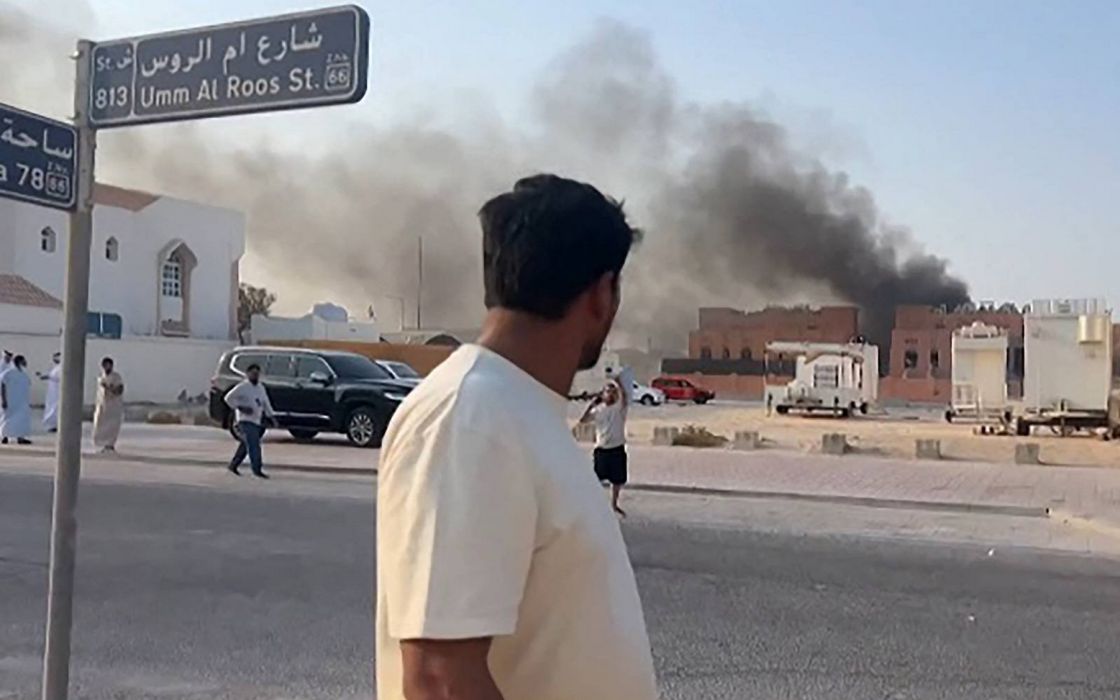- Editorials
- Posted
Kassioun Editorial 1243: From Doha to New York… Lessons Learned
During the last week, two significant events have taken center stage for our entire region, in terms of their weight and impact on the various equations governing the conflict, including those that directly affect us in Syria.
The first event was the “Israeli” shelling in Doha on Tuesday, September 9. The second was the overwhelming vote in the UN General Assembly on Friday, September 12, on the “New York Declaration on the Two State Solution”, which represents a significant additional step in deepening the international isolation of the Zionist entity, along with the US. Against the backdrop of these two events, global popular campaigns in support of the Palestinian cause continue to escalate to a level unprecedented in history, not even in the days of Vietnam or South Africa.
Among the most important conclusions that can be recorded about these two events are the following:
First: What appears to be progress and rise for the Palestinian cause on the international diplomatic and popular levels, despite the importance of these two levels, is in essence the fruit of the legendary resilience and resistance of the Palestinian people, and of the struggles and movements of the peoples of the region who have resisted colonialism throughout the past years and decades. Without this resilience, no global diplomatic or popular activity could have achieved any real progress.
Second: The “Israeli” attack on Doha completes erecting the tombstone of the “Abraham Accords”, which have been buried since October 7. It also brings to an end a long phase whose main theme was the “Axis of Arab Moderation”. Through actions and rhetoric, “Israel” is proving that it does not respect the sovereignty of any state or people in the region, and that it will not cease its sabotage and destruction, regardless of the concessions offered to it. This is precisely because its existence is organically linked to the implementation of a project of comprehensive destructive chaos that prevents any regional state from standing on its feet. Given this, even if the purpose of this attack is to intimidate the various countries in the region that have begun to disobey, what it will objectively produce is an acceleration of this disobedience and an acceleration of the shift of the countries of the region toward the East, toward China, Russia, and India, and the acceleration of the formation of anti-Zionist alliances.
Third: The attack also demonstrated that offering any amount of concessions to the Americans provides no cover or protection when the going gets tough. American weapons are locked when it comes to defending against “Israel”, let alone attacking it. No matter how large and well-armed American bases in the region are, they are bases against the countries in which they are located and are not a source of security or stability for them. The attack on Qatar is essentially American, even if “Israel” is at its forefront. From the American perspective, its goal is also to push toward detonating the entire region and subjugating it, in an attempt to prevent it from drifting away from the “American umbrella”.
Finally: As far as we are concerned in Syria, we must learn well from the lesson of September 9th, that the Americans cannot be relied upon, depended upon, or trusted under any circumstances. The only ones we can truly rely on are the Syrian people, first and foremost, through unifying them and their voice, through a genuine political solution based on the essence of UNSC Resolution 2254, including the transitional governing body and the General National Conference, leading to a permanent constitution and free and fair elections. In parallel, we must build international relations based on our interests and our understanding of the interests of various countries: the Americans and the Zionists do not want stability in Syria, and they have no interest in stability in Syria. On the other hand, emerging countries have a vital interest in stability in Syria, led by China, Russia, and India, and in the region, Turkey, Saudi Arabia, Iran, and Egypt.


